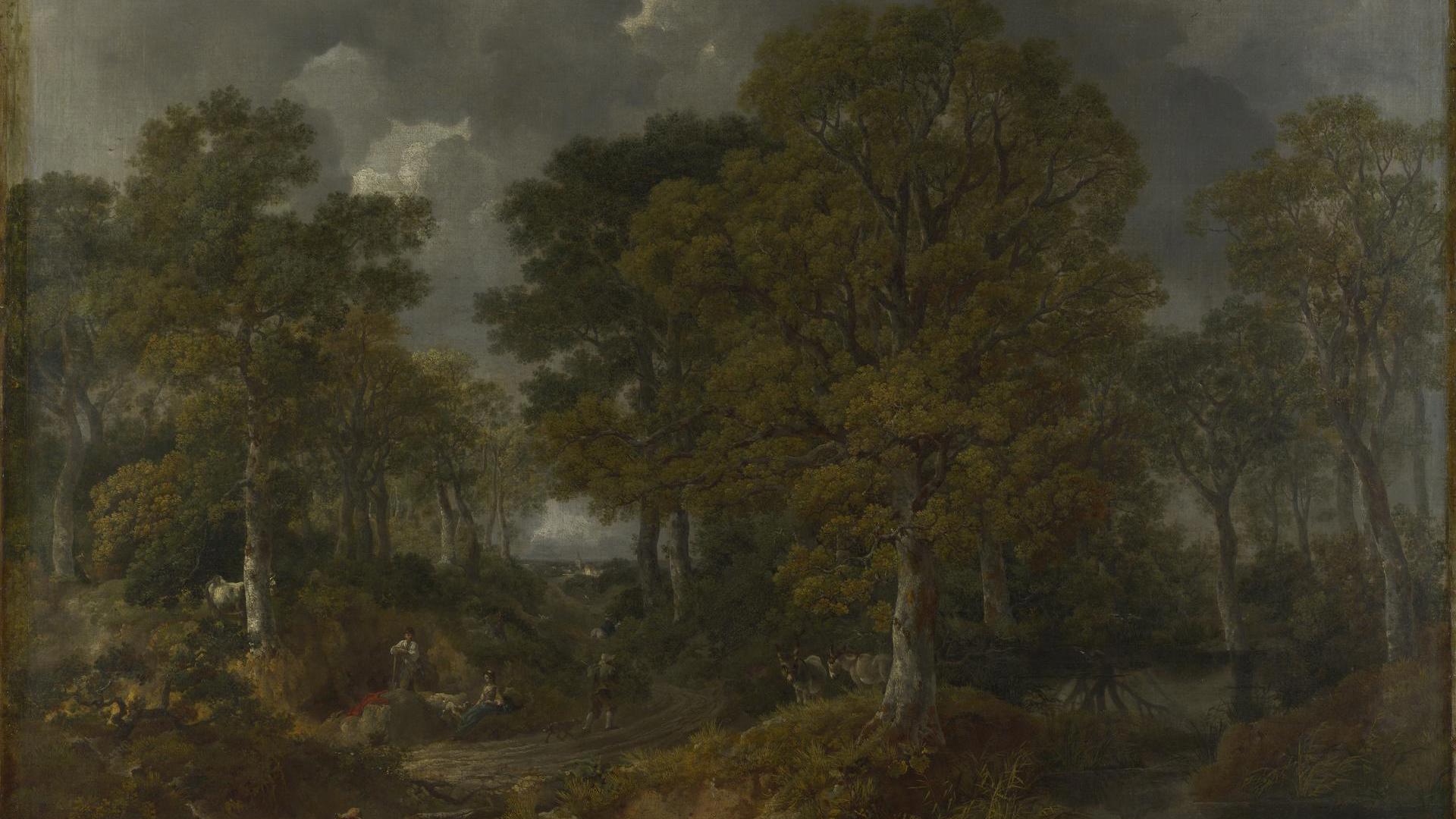Gainsborough, Cornard Wood, near Sudbury, Suffolk, 1748
Washington Irving, "Rural Life in England," from The Sketchbook of Geoffrey Crayon, Gent. ...
In rural occupation, there is nothing mean and debasing. It leads a man forth among scenes of natural grandeur and beauty; it leaves him to the workings of his own mind, operated upon by the purest and most elevating of external influences. Such a man may be simple and rough, but he cannot be vulgar. The man of refinement, therefore, finds nothing revolting in an intercourse with the lower orders in rural life, as he does when he casually mingles with the lower orders of cities. He lays aside his distance and reserve, and is glad to waive the distinctions of rank, and to enter into the honest, heartfelt enjoyments of common life. Indeed, the very amusements of the country bring, men more and more together; and the sound hound and horn blend all feelings into harmony. I believe this is one great reason why the nobility and gentry are more popular among the inferior orders in England than they are in any other country; and why the latter have endured so many excessive pressures and extremities, without repining more generally at the unequal distribution of fortune and privilege.To this mingling of cultivated and rustic society may also be attributed the rural feeling that runs through British literature; the frequent use of illustrations from rural life; those incomparable descriptions of Nature, that abound in the British poets—that have continued down from “The Flower and the Leaf,” of Chaucer, and have brought into our closets all the freshness and fragrance of the dewy landscape. The pastoral writers of other countries appear as if they had paid Nature an occasional visit, and become acquainted with her general charms; but the British poets have lived and revelled with her—they have wooed her in her most secret haunts—they have watched her minutest caprices. A spray could not tremble in the breeze—a leaf could not rustle to the ground—a diamond drop could not patter in the stream—a fragrance could not exhale from the humble violet, nor a daisy unfold its crimson tints to the morning, but it has been noticed by these impassioned and delicate observers, and wrought up into some beautiful morality.The effect of this devotion of elegant minds to rural occupations has been wonderful on the face of the country. A great part of the island is rather level, and would be monotonous, were it not for the charms of culture; but it is studded and gemmed, as it were, with castles and palaces, and embroidered with parks and gardens. It does not abound in grand and sublime prospects, but rather in little home scenes of rural repose and sheltered quiet. Every antique farm-house and moss-grown cottage is a picture; and as the roads are continually winding, and the view is shut in by groves and hedges, the eye is delighted by a continual succession of small landscapes of captivating loveliness.The great charm, however, of English scenery, is the moral feeling that seems to pervade it. It is associated in the mind with ideas of order, of quiet, of sober well-established principles, of hoary usage and reverend custom. Every thing seems to be the growth of ages of regular and peaceful existence. The old church of remote architecture, with its low, massive portal; its Gothic tower; its windows rich with tracery and painted glass, in scrupulous preservation; its stately monuments of warriors and worthies of the olden time, ancestors of the present lords of the soil; its tombstones, recording successive generations of sturdy yeomanry, whose progeny still plough the same fields, and kneel at the same altar;—the parsonage, a quaint irregular pile, partly antiquated, but repaired and altered in the tastes of various ages and occupants;—the stile and foot-path leading from the churchyard, across pleasant fields, and along shady hedgerows, according to an immemorial right of way;—the neighboring village, with its venerable cottages, its public green sheltered by trees, under which the forefathers of the present race have sported;—the antique family mansion, standing apart in some little rural domain, but looking down with a protecting air on the surrounding scene; all these common features of English landscape evince a calm and settled security, a hereditary transmission of homebred virtues and local attachments, that speak deeply and touchingly for the moral character of the nation.












































































































































































No comments:
Post a Comment